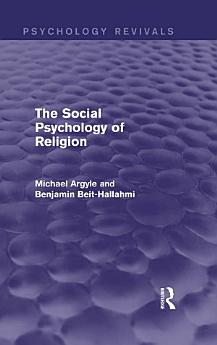The Social Psychology of Religion (Psychology Revivals)
About this ebook
Trends in religious activity in Britain and the United States since 1900, and the state of religion in these two countries at the time, are examined. Evidence is presented on the origins of religious activity – including the effects of stress, drugs, meditation, evangelistic meetings, personality variables, and social class. Other studies examine the effects of religion, for example on mental and physical health, political attitudes, racial prejudice, sexual behaviour, morals, and the relation between religion and scientific and other achievements.
The findings are used to test the main theories about religion which have been put forward by psychologists and other social scientists, such as Freud’s father-projection theory, cognitive need theories, and deprivation-compensation theories.







